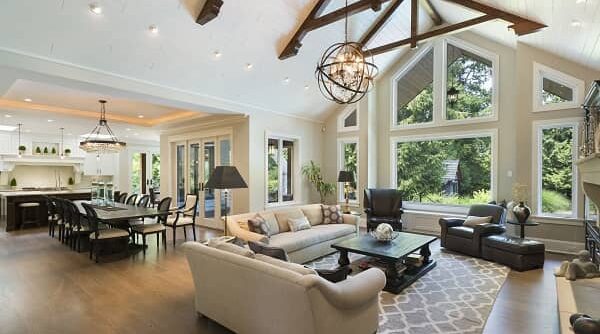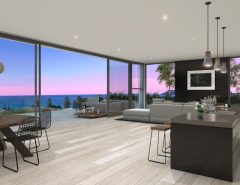When looking at houses, it’s easy to get caught up in the excitement and think about what color you want your living room to be or which appliances will go best with the cabinets. But before you sign the dotted line, it is important to take a step back and make sure that you are making a decision for both your current needs and future ones. Here are things to consider before buying a house plan.
Elevation
How many stories will your new home be, and how high off the ground will it go? Will there be a basement or an attic? This can make a big difference in your knowledge of where things are and utility bills. The more levels you have means higher energy costs for heating and cooling since heat rises. Additionally, if you’re on city sewer instead of septic (which often happens when homes are built closer together), that could impact your monthly cost.
HOA Fees/Covenants
Some communities require dues for the upkeep of common areas shared by all homeowners within that subdivision; other neighborhoods may prefer to keep a uniform look throughout with covenants or restrictions on what homeowners can not do with their homes. If either of these things is important to you, it’s important to ask about potential HOA fees and read the CC&Rs (covenants, conditions, and restrictions) before buying.
The Size of the House
This one is probably pretty obvious, but make sure that the size of the house will fit your needs. You don’t want to be cramped up in a small home or too spread out in a huge one, especially if you have kids. A good rule of thumb is to multiply the number of people living in the home by 400 square feet. This should give you an idea of how much space you’ll need.
The Layout of the House
How are the bedrooms situated? Are they all on one side of the house or scattered around? What about the living areas? Do you want a formal living and dining room, or would you prefer an open concept kitchen/family room with a pocket door? These are all things to think about when looking at different floor plans.
Local Zoning Ordinances
You may find that while a certain floor plan is perfect for your needs, it doesn’t quite fit within the zoning ordinances for your area.
School District
If schools are important to you (and should be), make sure that the house is within your desired school district. Keep in mind that some districts may have different boundaries, especially if they cover a large area or multiple townships. You can look up the school district online or ask someone at the local town hall to determine where you will fall on the spectrum.
Household Budget and Other Monthly Expenses Before Buying House Plans
If there’s something we know about mortgages, it’s that people don’t always plan for all of their bills when signing those papers (even though mortgage lenders love to remind us otherwise).
Before committing yourself financially to purchasing a home, make sure that you’re prepared for what else life has in store after closing day; this includes utilities like water, sewer, and trash service, as well as monthly landscaping or pool service costs. If you’re unsure what your regular expenses will be each month, try using a budgeting app to get an idea.
Consider Your Budget
Can you afford a mortgage, insurance, and property taxes each month? If the answer is less than what your current rent costs, then you may want to reconsider buying a house at this time.
The Climate In Your Area
Houses designed for colder climates typically have more insulation and features like heated garages which can add significantly to the overall cost of the home. If you live in an area with warmer weather year-round, you could save money by choosing a plan without these features.
The Style of the House
Do you want a traditional home with shutters and a white picket fence or something a little more modern? There are different styles to choose from so take your time perusing through all the options until you find one that’s just right for you.
The Number of Bedrooms and Bathrooms
This is another obvious one but make sure that the number of bedrooms and bathrooms suits your needs. If there are ten people in your family, then you’ll need at least five bedrooms—simple as that.




